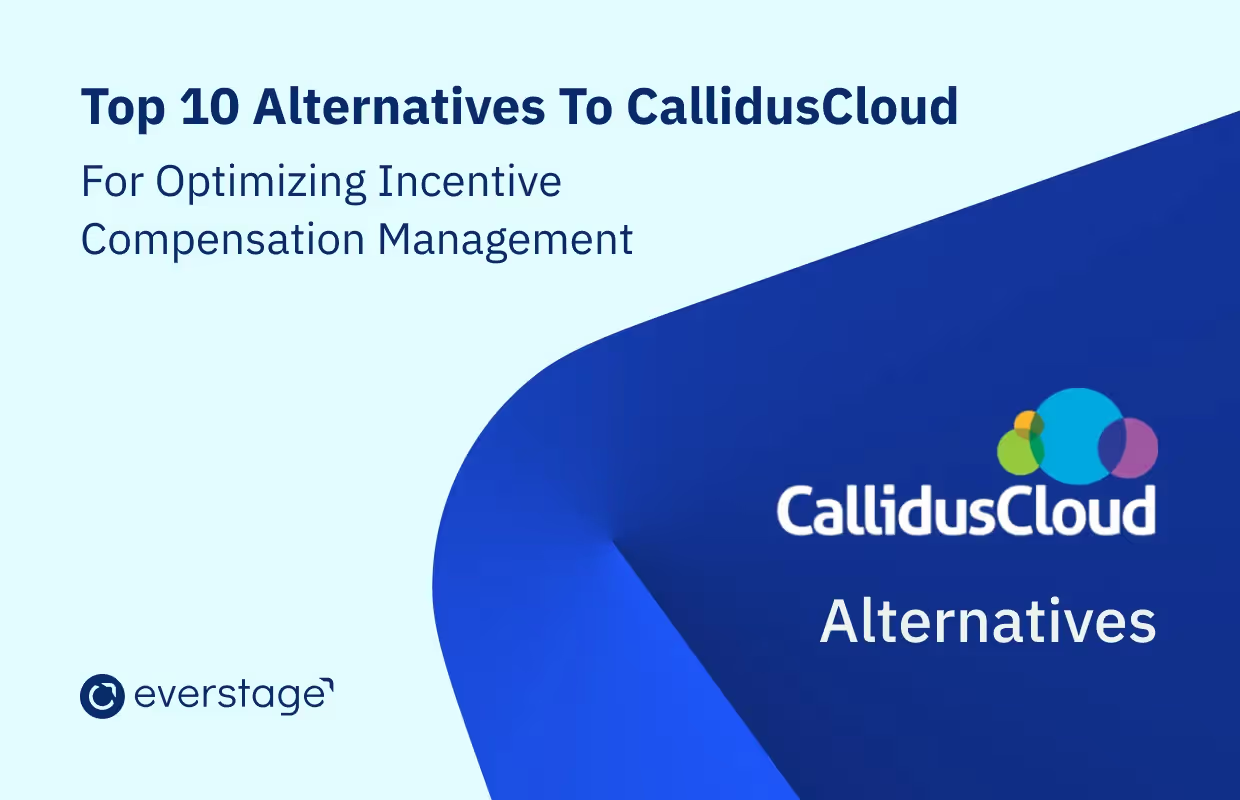Sales commission laws define when sales reps legally earn commissions, based on contract terms, performance metrics, and state regulations, ensuring fair payouts and compliance.
- Align company goals and sales rep motivation with well-structured commission plans.
- Clarify earning criteria, such as contract signing or payment receipt, to avoid disputes.
- Account for returns or cancellations that may trigger chargebacks.
- Understand post-termination commission rights, as most states protect owed payouts.
Sales commissions play an important role in aligning the objectives of a company with the motivations of a sales representative. When structured effectively, commissions have proven to drive better sales performance, leading to business growth.
But commissions come with their own set of terms and conditions which vary based on contractual agreements, performance metrics and the state laws. In this blog, we aim to help you understand when a sales commission is legally earned, commission laws, commission pay after termination and more.
When is a sales commission legally earned?
Although there’s no straightforward answer to when is a sales commission legally earned, the following five factors can help determine the credibility:
1. Sales completion as a legal requirement
A “completed” sale is one where the customer has successfully paid for the product or service or signed an agreement. However, this can vary. Whether a sale needs to be fully finalized, shipped, or paid to be legally eligible for commission can further depend on the employer agreement or contract.
The commission agreement must clearly state the contingencies or conditions that must be satisfied before a commission is legally earned.
2. Impact of return policies and cancellations
Product returns or payment cancellations can impact a commission and can vary between companies.
For example:
- In case sales reps have already earned commissions or bonuses, these are collected from them in future commission runs.
- In the case of returns, some companies create negative sales orders where instead of paying sales reps, money is collected from them.
So, in most cases, returns and cancellations can result in chargebacks or commission forfeiture from the salesperson’s future earnings.
3. Timing of commission payments
When should commissions be paid? Timing is another factor contributing to commission earnings. Unless your company is well-funded and making profits, it can be challenging to pay commission upfront on deals.
So, the timing of commission payments can vary between:
- Upfront commissions earned as soon as the sale is finalized. However, these can be risky for companies due to the feasibility of returns, cancellations, and non-payments.
- Deferred payments earned post-delivery of goods or services.
Legally, commissions are considered earned and payable based on the signed sales contracts curated via mutually agreed-on sales milestones, such as sales completions, customer payments, or products shipped, and also based on the local state or labor laws (discussed in the next section.)
Also, stringent customer payment terms like Net 30/60/90 and installments can affect when a commission is legally paid to a sales rep on time.
4. Role of sales commission agreements
Sales commission agreements are legal documents stating the commission-based compensation terms and conditions.
For example, commission rates, eligible sales quotas, payment terms, and how commissions are calculated.
These documents provide clarity in layman's terms on how commissions are calculated, earned, and paid so there’s no dispute between parties. Outlining custom terms, such as sales milestones, post-sale support, sales rep responsibilities, and other performance clauses can significantly shift the point at which commissions are legally earned.
5. Procuring cause and commission eligibility
The “procuring cause” criteria is a legal requirement that states an employee is entitled to commissions if they were the primary reasons for a sale post-termination, despite the sales contract not exclusively mentioning post-termination commissions.
For example, a former real estate agent could be a procuring cause of a home purchase and owned commission if they were the sole reason behind the buyer purchasing the home.
The legal framework for commissions
Here are the primary laws and legal remedies governing sales commissions:
1. Federal laws governing commissions
Below are the three main federal commission laws:
- The Fair Labor Standards Act (FLSA) is a US labor law that states the minimum wage, overtime pay, recordkeeping, and child labor standards. This law also requires private-sector employers to pay their employees their due share for all hours worked, including commissions.
- Antitrust laws also called price-fixing competition laws, are a set of federal regulations that include agreements among employers to fix sales commissions. These ensure fair trade and prevent potential commission manipulations.
- The Employee Retirement Income Security Act (ERISA) governs how employers provide benefit plans to retired employees and can be useful in determining how commission-based employees are compensated. For example, employees defer a portion of their commissions into a retirement account and are matched by the employer on retirement.
2. State labor laws impacting commission payments
Most states have employment laws regarding commission payments and time frames.
For example, California requires employers to pay commissions when rightfully earned under their labor code. Also, New York requires commissions to be factored into minimum wage calculations.
There are also several state commission laws around termination and resignation. Texas, for example, states that employees who have been involuntarily terminated are entitled to receive their share of commission based on the written agreement.
3. Legal remedies for unpaid commissions
State laws can be crucial in recovering earned but unpaid commissions. They cover legal routes, such as lawsuits, wage claims, and arbitration, that employees can use to recover pending commissions.
For example, the Illinois Wage Payment and Collection Act (IWPCA) states that employers must pay earned commissions per the terms of their signed agreements and cannot withhold any payment due to employees.
In case of non-adherence, employers can be subjected to wage theft lawsuits, penalties, and state-specific enforcement measures.
Understanding sales commission agreements
A sales commission agreement outlines the terms under which employers must compensate sales reps for their efforts. It sets clear expectations by defining key terms, such as payment schedules, sales targets, commission structures, and several other essential clauses under which commissions are distributed.
A well-articulated sales agreement reduces the room for potential labor law disputes and disagreements between both parties. Modifications to the agreement must also follow a structured process that documents every change to protect both parties.
In this case, it is recommended to seek professional legal advice to address potential loopholes that could lead to disputes.
5 critical legal principles influencing commission payout
When is a sales commission legally earned? The following five principles ensure commissions are earned fairly:
1. Meeting the threshold requirements
Threshold requirements in sales are specific conditions and non-negotiable benchmarks indicating high performance that must be met to be classified as commission-worthy.
These can be:
- Meeting sales performance quotas. For example, maintaining a 30% deal conversion rate.
- Achieving minimum sales targets. For example, achieving at least $20k in revenue by the end of Q1 as a sales team.
- Meeting certain sales compensation benchmarks. For example, long-term employees may receive more compensation.
2. Completion of sales
Sales completions play a huge part in the legality of commission payouts. However, the clear definition of a completed sale can vary between businesses. It’s best to communicate the exact criteria for what constitutes a completed sale.
For example, a completed sale is only considered if the payment has been duly received within the Net 30 payment term and no cancellations have been made. Similarly, a completed sale in some industries can be considered as soon as a client accepts the offer.
However, it’s important to note the effect product or service cancellations, returns, or chargebacks have on commission payouts. For instance, returns made post-commission-payout can result in negative sales orders and affect sales reps. So, as a best practice, such conditions must be included in the sales commission agreements and company policies.
3. The parties’ understanding
An unclear, jargon-heavy language used in sales contracts and agreements can lead to wrong interpretations and affect parties’ understanding of the exact terms and conditions.
Using precise language in commission agreements is best to keep both parties on the same page and reduce any potential room for back-and-forth communications.
4. Statutory timing
A legally earned commission is best governed by a combination of the major federal and respective state commission laws. Statutory timing, based on these laws, is a huge factor considered in commission payouts.
It indicates cases where sales reps carried out the necessary responsibilities to qualify a commission payout yet the deal did not occur due to reasons not in the sales reps’ control. In such instances, the ruling can be in the sales rep’s favor as per the law, considering there’s ample written documentation to support their claims.
5. Tax implications and compliance
The Internal Revenue Service (IRS) considers a sales commission as a supplemental payment of wage that’s subject to taxation. Taxations can vary between states. However, on average, a flat 25% tax is withheld from the commission portion.
Employees and employers have equal responsibilities in reporting requirements and commission-specific tax payments. Non-compliance consequences include heavy penalties for late payments.
The effects of employee termination and resignation
Employee termination or resignation can influence how commissions are structured and when they must be paid.
We discuss its impact and considerations in detail below:
1. Legal considerations for commission payouts upon employee termination or resignation
Some states forbid employers from withholding the commission earned before the employee’s termination or resignation.
These states are:
- New Washington: Washington’s passed a new law on payment of commissions for sales reps that states employers must pay the “earned commission” no later than 30 days of goods’ sales and applies the rule to terminated sales reps, too.
- Illinois: The state labor law states employers must pay terminated sales reps their commission dues as per the signed agreements and not withhold them.
- California: Under the state’s law, any bonuses or commissions an employee receives are considered earned wages and employers cannot withhold them even after termination.
2. Treatment of accrued but unpaid commissions
Commission accruals are used to account for the sales commission earned by salespeople during a specific period but are not paid out yet. So, once the sales rep meets the set requirements to be eligible for a commission, the expense becomes accrued even if it’s unpaid.
Therefore, irrespective of the sales rep’s current employment status with the company (i.e., terminated or resigned,) the accrued commission must still be paid, often as a final paycheck.
3. The role of the “procuring cause” doctrine
A procuring cause doctrine is a rule of fairness that states a sales rep is unconditionally eligible for the promised commissions if they were the sole reason behind a successful deal closure. This default rule applies to various contexts including payment of commissions after termination or commission pay after quitting.
4. Severance agreements and commission rights
A severance agreement is a written contract between an employee and their employer detailing the terms of the employee’s termination. Both parties can negotiate their severance agreements beforehand so they clearly address employee compensations provided as commissions or bonus payouts.
Proven methods for managing commission disputes
Some of the most frequently occurring sales commission disputes include:
- Non-payment of commissions earned
- Disagreement on commission rates or structure
- Disagreements on payout timelines
- Payout delays post-termination or commission pay after quitting
- Disputes over product cancellations, returns, or chargebacks
We’ve outlined a few tried and tested methods to effectively manage the above commission disputes proactively:
1. Get better at communicating about commissions
Poor communication is a leading cause of sales commission disputes. Pinpoint where your communication strategy is falling apart and have a plan to convey the compensation plan better. Start by eliminating jargon-heavy language from all agreements and contracts.
2. Have comprehensive agreements
A clear and comprehensive sales commission agreement can push back the most frequently occurring disputes. That’s because detailed agreements go over multiple specifics dictating commission eligibility, legality, and payouts for different sales positions.
For example, they can state how returns/chargebacks are handled, post-termination clauses, severance payouts for commissions, commission eligibility, payout timelines, and more.
3. Consider reviewing and adjusting your commission plan
Frequent disputes are a major wake-up call for you to refresh your commission plan. Review and analyze your plan to keep it as fair and simple as possible.
4. Offer visibility to your sales reps
Provide your sales reps with clear-cut insights into their promised commissions from day one.
For example, offer them visibility on their earnings, deals considered for commissions, potential earnings for the current cycle/quarter/month, etc.
Wrapping up
Understanding when a sales commission is legally earned can help organizations build a motivated sales team.
Both employees and employers must be on the same page with the legal framework and performance benchmarks governing fair and square sales commission payouts. Clearly outlined commission agreements make it easier for employees to understand legal requirements and avoid raising disputes.




.avif)
.avif)
.avif)





